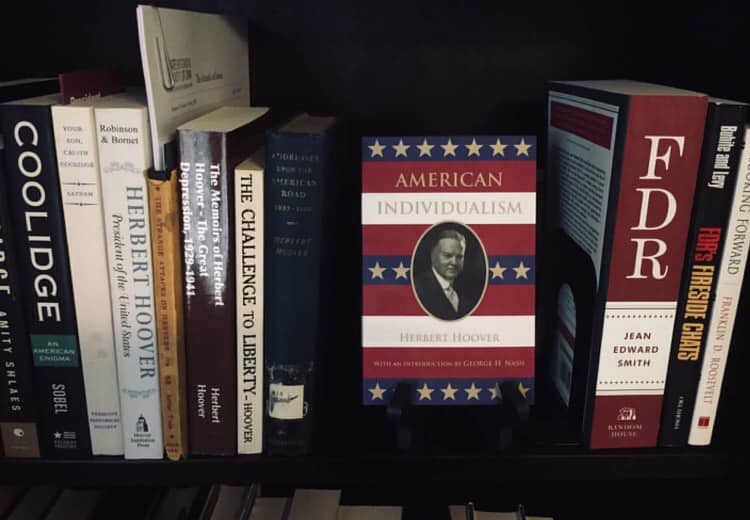
A Presidents Day Message
Nestled between the untouchably humble Calvin Coolidge and the untouchably favored FDR is one of the more historically maligned presidents of the 20th Century, a man so low on the totem pole of American memory as to warrant only a marginal footnote, that he was the man in charge, seated in the White House at the dawn of the breadlines and the Great Depression. But there is great irony in his lowly fame, as Herbert Hoover was not only an internationally recognized humanitarian during the aftermath of World War I, providing food and sustenance for European allies, but he also became, in the years before and after his time in office, the most prolific writer of, dare-I-say, “intellectual” and “compassionate” conservatism to have ever held the presidency.
There was indeed a time when conservatives, as a whole, were academically thoughtful, politically compassionate, and even religiously tolerant, a time when their greatest ambitions, of innovation and industry, were not all that far off from their more liberal counterparts, a time when the primary mantra was something more valued and principled than fear of immigrants, hate for those of religious difference, and a glorified self-importance that casts aspersions of denegration on anyone who would dare stand to criticize or speak ill of them or those in charge of them, a time when conservatives of good will and ethical fortitude would have taken down and crushed the vile and cancerous members of their own party.
So I sat down to read Mr. Hoover this morning, as one might imagine I would, this Presidents Day, taking up his small essay on American Individualism. And here was my great takeway, nearly 100 years after its first publication in 1922.
Hoover was an engineer who championed almost every productive aspect of the Industrial Revolution. He even wrote manuals explaining best methods and best practices for efficient mining. And had Hoover been around today, he would have championed the individualism that fueled men like Tim Berners-Lee to build and let loose the web, in 1991, a space for people to share and interact with information at a grander scale than at any prior time in human history.
Hoover would have loved it. But only to a point. Certainly not to the point at which that space provided less a means for progress than a means for entrenched paranoia, narcissism, and partisanship. At such a point, Hoover would have wanted those tasked with its expansion to recognize the sour by-products of such innovation and self-correct.
“Considerable experience leads me to the conviction that while we do wash our dirty linen in public, most others never wash it… if we continue to advance we will find new difficulties and weaknesses as the by-product of progress–but to be overcome.”
“We have long since realized that the basis of an advancing civilization must be a high and growing standard of living for all the people, not for a single class; that education, food, clothing, housing, and the spreading use of what we so often term non-essentials, are the real fertilizers of the soil from which spring the finer flowers of life.”
“We cannot ever afford to rest at ease in the comfortable assumption that right ideas always prevail by some virtue of their own. In the long run they do. But there can be and there have been periods of centuries when the world slumped back toward darkness merely because great masses of men became impregnated with wrong ideas.”
“Social injustice is the destruction of justice itself… each individual shall be given the chance and stimulation for development of the best with which he has been endowed in heart and mind; it is the sole source of progress; it is American individualism.”
“Development of human institutions and of science and of industry have long been chains of trial and error. Our public relations to them and to other phases of our national life can be advanced in no other way than by a willingness to experiment in the remedy of our social faults. The failures and unsolved problems of economic and social life can be corrrected… the solution is a matter of will to find solution.”
“The most potent force in society is its ideals.”
“We can agree at once that intelligence, character, courage, and the divine spark of the human soul are alone the property of individuals. These do not lie in agreements, in organizations, in institutions, in masses, or in groups. They abide alone in the individual mind and heart.”
Reading from presidents of good character gives me solace at a time when the existing occupant of the White House is the sour by-product of our social innovation and technological progress, a man who embodies the worst American instincts.
We will self-corrrect. And at some point we will overcome.

About Hamilton
